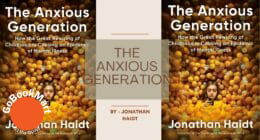Memoirs hold a unique place in the literary world. They are deeply personal yet universal, intimate yet wide-reaching. Readers turn to memoirs not only to understand the author’s life but also to see reflections of their own experiences. But what separates an authentic and relatable memoir from one that feels contrived or distant? Let’s explore the elements that breathe life into this compelling genre.
What Makes a Memoir Feel Authentic and Relatable?
The Power of Vulnerability
One of the most significant factors in a memoir’s authenticity is the writer’s willingness to be vulnerable. Vulnerability invites readers into the author’s world, offering unfiltered glimpses of joy, pain, failure, and triumph. When writers are honest about their imperfections, they create a bridge of empathy that connects them with their audience.
Example: Tara Westover’s Educated is a striking example of vulnerability in memoir writing. Westover recounts her tumultuous upbringing in a survivalist family with unflinching honesty, detailing moments of abuse, self-doubt, and the struggle for self-definition. Her willingness to confront uncomfortable truths makes her story resonate with readers on a profound level.
Specificity Over Generalization
A memoir that focuses on specific, vivid details is far more compelling than one that leans on vague generalities. Specificity grounds the narrative in reality, making it feel more immediate and relatable. Instead of saying, “I had a tough childhood,” an authentic memoir might describe the cracked linoleum floor of the kitchen or the exact words spoken during a formative argument.
Example: Jeannette Walls’ The Glass Castle doesn’t just tell us that her family was poor—it describes nights spent under the stars because they couldn’t afford rent, and the imaginative games she played with her siblings to distract from hunger. These vivid scenes bring her childhood to life, allowing readers to see, hear, and feel her experiences.
An Engaging Narrative Arc
Even though memoirs are rooted in real life, they benefit from a well-structured narrative arc. A meandering, unfocused memoir can feel disjointed, whereas one with a clear progression of events—even if non-linear—feels purposeful. Authenticity doesn’t mean including every detail; it means selecting moments that build a cohesive story.
Example: Cheryl Strayed’s Wild chronicles her journey hiking the Pacific Crest Trail, but it’s not just about the hike. Strayed weaves her past struggles—the death of her mother, a failed marriage, and drug use—into the narrative, creating a tapestry of resilience and self-discovery. The book’s structure amplifies its emotional impact.
A Distinct Voice
The voice of a memoirist is like a fingerprint: it should feel unique and unmistakably theirs. A strong voice can elevate even the simplest stories into something extraordinary. Whether the tone is humorous, reflective, defiant, or tender, it must feel genuine.
Example: In Born a Crime, Trevor Noah’s voice shines through with humor and insight as he recounts his childhood in apartheid-era South Africa. His distinct blend of wit and candor draws readers in, making even harrowing moments feel accessible and human.
Balancing the Personal with the Universal
A memoir feels relatable when it balances deeply personal experiences with universal themes. Readers may not share the exact circumstances of the author’s life, but they can connect with the emotions and struggles that underpin the story—grief, love, identity, resilience, or the search for belonging.
Example: Michelle Obama’s Becoming is rooted in her unique journey from the South Side of Chicago to the White House, yet it resonates widely because it explores universal themes like ambition, family, and the tension between public and private life. By tying her personal story to these broader ideas, Obama creates a memoir that feels both intimate and widely relatable.
Honesty Without Self-Indulgence
Authenticity requires honesty, but it’s a delicate balance. Memoirists must avoid the temptation to exaggerate, justify, or overly glorify their experiences. Similarly, excessive self-pity or self-congratulation can alienate readers. Instead, the best memoirs present events with humility and allow readers to draw their own conclusions.
Example: In When Breath Becomes Air, Paul Kalanithi reflects on his life as a neurosurgeon facing terminal cancer. His writing is honest and introspective without being self-indulgent, focusing on what it means to live a meaningful life rather than dwelling on the unfairness of his diagnosis. This measured honesty lends his memoir a profound sense of authenticity.
The Role of Reflection
A memoir isn’t just a recounting of events; it’s an exploration of their meaning. Reflection allows authors to step back and provide insight into their experiences, helping readers understand not just what happened, but why it matters. This reflective layer is crucial for relatability, as it invites readers to ponder their own lives in parallel.
Example: Elizabeth Gilbert’s Eat, Pray, Love intertwines vivid storytelling with thoughtful reflection on love, spirituality, and personal growth. Her candid musings on her desires and doubts transform the book from a travelogue into a deeply relatable journey of self-discovery.
Embracing Complexity
Real life is messy, and authentic memoirs embrace that complexity. They acknowledge contradictions, unfinished stories, and the gray areas of human experience. A memoir that ties everything up in a neat bow can feel artificial, whereas one that leaves space for ambiguity feels true to life.
Example: In H Is for Hawk, Helen Macdonald explores her grief after her father’s death through the lens of training a goshawk. The book doesn’t offer easy answers or a tidy resolution, but its willingness to delve into the complexities of grief and healing makes it profoundly authentic.
Connecting Through Shared Humanity
At its core, an authentic and relatable memoir reminds readers of our shared humanity. By revealing their innermost thoughts and emotions, memoirists allow readers to see themselves in the story. This connection is what makes memoirs so powerful.
Example: Maya Angelou’s I Know Why the Caged Bird Sings resonates across generations because of its unflinching portrayal of racism, identity, and resilience. Angelou’s personal story speaks to broader truths about human strength and dignity, making it deeply relatable to diverse audiences.
Also Read: What Makes an Author Connect with Readers? Insights into Literary Impact












